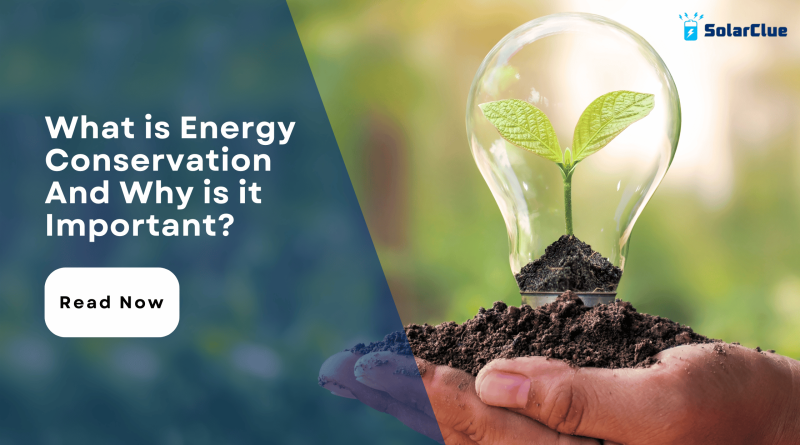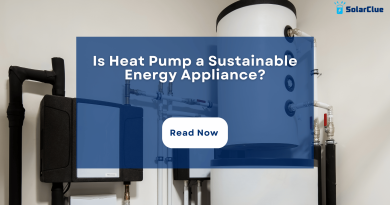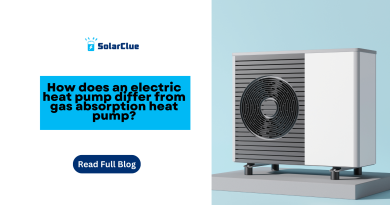What is Energy Conservation And Why is it Important?
We hear so much about lower energy consumption and sustainability. But what is energy conservation? Energy conservation is the practice of using less energy to reduce your environmental impact and save money.
In this blog, we will discuss in detail about energy conservation, and how to conserve energy at home.
Table of Contents
What is Conservation of Energy?
Conservation of energy refers to efforts made to reduce the consumption of energy sources like electricity, fossil fuels, etc. More electricity consumption means more burning of coal, which is harmful to human health and the environment. Energy conservation is crucial for sustainability and protecting our planet’s natural resources for future generations.
Why Should We Conserve Energy?
There are several compelling reasons why we should conserve energy:
- Lower Utility Bills: Reducing energy usage directly translates to lower electricity and fuel bills, saving you money.
- Environmental Protection: Conserving energy reduces greenhouse gas emissions and pollution associated with energy production, helping combat climate change.
- Resource Preservation: Energy conservation helps conserve limited natural resources like coal, oil, and natural gas, making them last longer.
- Improved Air Quality: By reducing fossil fuel consumption, energy conservation decreases air pollution and improves air quality.
- Increased Energy Security: Conserving energy decreases our dependence on imported energy sources, enhancing national energy security.
How to Conserve Energy?
There are several ways in which consumption of energy can be reduced. To bring major changes, industries and Government need to take steps. But what can we do to conserve energy at home? This can contribute towards reducing environmental and human health hazards.
Many household appliances consume significant amounts of energy, driving up costs and environmental impact. Adopting energy-efficient appliances can be the solution. For example, a device like a geyser consume a lot of electricity to efficiently produce hot water. But if you replace it with a heat pump, it will consume 75% less electricity, yet will efficiently meet your daily hot water needs.
What is a Heat Pump and How Does It Work?

A heat pump is a water heating appliance. Unlike a geyser, which uses direct electricity to produce hot water, a heat pump uses electricity to transfer heat. It works by transferring heat from the surrounding air to the water, rather than generating heat directly.
The key components are:
- Exhaust Fan: Draws in heat from outside air.
- Compressor: Compresses the refrigerant, increasing its temperature.
- Storage Tank: Stores and transfers heat from the refrigerant to the water.
The exhaust fan brings in heat from outside, while the compressor and refrigerant absorb heat from this air. This heat is then transferred to the water in the storage tank. As heat pumps move heat rather than generating it, they consume much less electricity than standard geysers, making them efficient and cost-effective in the long run.
As a heat pump works on the principle of transferring heat from one place to another, it requires less energy. It utilizes natural resource (surrounding air heat) to heat water. So energy requirement for efficient operation is significantly less. Only the exhaust fan and the compressor requires electricity.
What are the other benefits of Heat Pump Systems
Apart from energy efficiency, heat pump water heaters offer several other advantages:
1. Cost-Effective
Heat pump systems can significantly reduce your energy costs for water heating. Since they consume 75% less electricity than conventional electric water heaters, you can save bucks every month on your utility bills depending on your hot water usage. The upfront cost is higher but the long-term savings make up for it within a few years.
2. Long Lifespan
Well-maintained heat pump water heaters typically last 10-15 years, much longer than the 8-12 year lifespan of a standard electric geyser. Their simple design with minimal exposed heating elements contributes to their durability. Regular maintenance like cleaning air filters can further maximize their service life.
3. Reduced Water Wastage
Traditional water heaters constantly heat and reheat the same water, leading to significant energy losses. Heat pumps heat water more efficiently, so you don’t have to run the tap as long waiting for hot water. This conserves water, especially in households with long pipe runs.
4. Positive Environmental Impact
Heat pumps consume much less energy than conventional electric resistance heaters to produce the same amount of hot water. This significantly lowers greenhouse gas emissions associated with electricity generation. A household can prevent carbon dioxide emissions per year by switching to a heat pump.
5. Efficient in Cold Climates
Heat pumps are effective at extracting heat from cool air down to around 40°F. Even in colder regions, they remain more energy-efficient than conventional electric heaters by absorbing ambient and ground-sourced heat.
6. Manual Temperature Setting
Heat Pumps have the feature of manually setting temperature at the desired temperature. Normally, it heats water to a temperature of 55°C. But it can be changed as per the required. This feature is not there in traditional water heaters.
Conclusion
Conserving energy at home is not only good for the environment but can also save you money on utility bills. Adopting energy-efficient solutions like heat pumps is an excellent way to reduce your energy consumption and play your part in promoting sustainability.
Visit SolarClue® to see the best heat pump water heaters. SolarClue® is an online marketplace where solar energy products are sold at discounts up to 50%.




